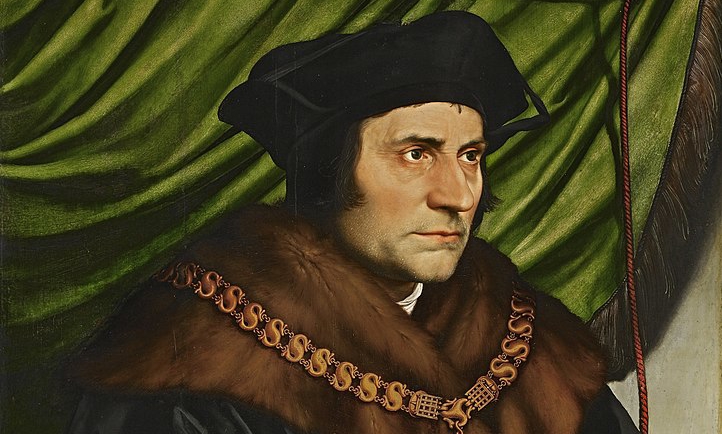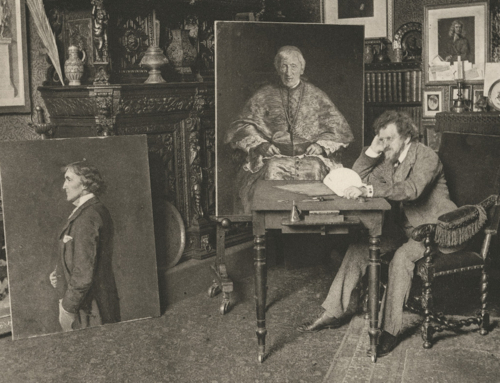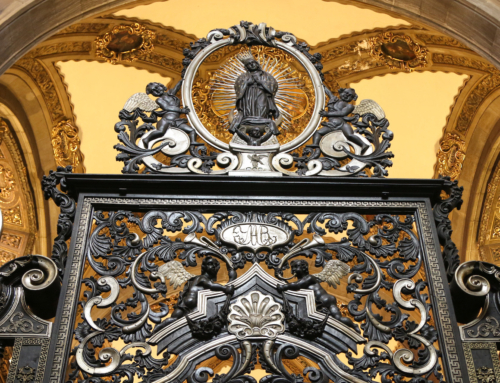Faith and Film Friday: A Man for All Seasons
Editor’s Note: This is the fourth review in our series, Faith and Film Friday. Read the whole series here.
Important things—what we may call “things of consequence”—tend to be loud. Soldiers fighting a fierce battle are loud. Citizens protesting against an evil government are loud. The martyrdom spectacles at the Colosseum were loud. When Peter preached for the first time after Pentecost he “raised his voice” (Acts 2:14) so as to be loud. Upon Christ’s birth a multitude of angels sang (presumably quite loudly) the praises of God (Lk 2:13). Upon the cross, “Jesus uttered a loud cry, and breathed his last” (Mk 15:37).
Of all men, the saints live lives that are the most consequential, for nothing is of more consequence and more transformative than loving God and living that love. One would expect their lives to be loud, heroic, and dramatic. St. Thomas More, a lawyer and statesman, seems not to fit this characterization. Certainly, A Man for All Seasons—a film debuting in 1966, based on Robert Bolt’s play of the same name—does not portray More as “loud.” More does not loudly protest King Henry VIII’s divorce from his lawful wife, but is silent about the matter, using the fullness of his powerful wit to avoid having to make any statements regarding it. He does not dramatically resist the king’s schism of England from the Catholic Church, but resigns his chancellorship and attempts to fade into obscurity.
However, More’s silence in no way communicates dullness, obscurity, or timidity. No, the film shows him to be a quite dignified, charming, and even stately figure, while being commonsensical and down-to-earth. Essentially, he is shown to be a man of integrity and to be confidently in control of himself, a man of principle. The musical score that surrounds him bespeaks order and beauty, and the film’s use of color and light around More connects his character with goodness and truth. The film portrays More’s silence in the context of this light and order, which contrasts with the shadows and corrupt settings used to convey More’s adversaries, or the darkness of the Tower of London in which they later unjustly hold him.
Far from being obscure or confusing, More’s silence represents the clarity and conviction of the truth which this same silence so loudly proclaims to the ears of all England. As his adversary, Cromwell, declares, “This silence betokened, nay, this silence was, not silence at all, but most eloquent denial!” More’s silence flows from his personal integrity and profound faith. He was not looking to do something heroic, nor was he trying to be loud—his opportunity to witness so boldly to the faith was, in God’s providence, simply thrust upon him.
Beyond providing us an example to imitate, More’s silence also provides us a window through which to understand the silence of God in the midst of human suffering. More’s wife, Lady Alice, speaking to him imprisoned in the Tower of London, tearfully declares, “If you go [to your death], God knows why I suppose, but with God as my witness, God has kept deadly quiet about it.” This scene communicates a rare emotional release from Lady Alice as she struggles with how God could remain silent with her innocent husband in such dire straits. More, however, is never shown struggling with this question, and is presented as unsurprised by his sufferings. Just as the film portrays the silence of More as an agent for truth and righteousness, the film leaves the silence of God to be interpreted through the same lens.
Early in the film as he justifies his refusal to publicly disavow King Henry’s divorce, More asserts, “In silence is my salvation.” More, of course, was speaking of his own silence, but—in what I would argue is purposeful ambiguity and allusion—this is easily applied to the silence of God in More’s own sufferings. Having carried the cross in silence, he looks with confidence toward the resurrection. More does not need to hear a locution from God in order to know and love him, because, just as all England knows the meaning conveyed by the silence of More, More knows the meaning conveyed by the silence of God. He knows this because he knows God; he knows what God’s silence is proclaiming.
Next week we will review Brideshead Revisited.
✠
Image: Hans Holbein, Sir Thomas More







